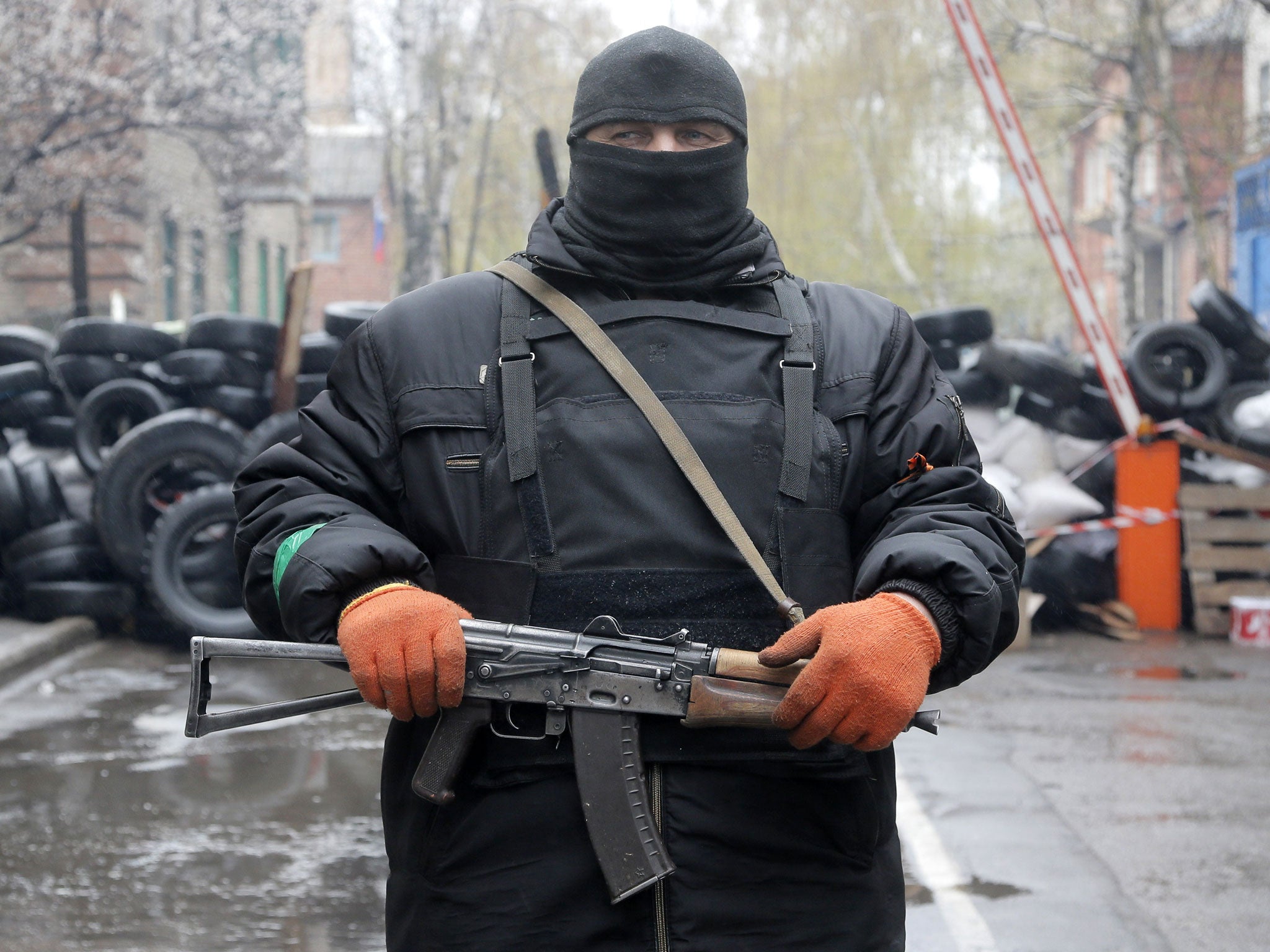Unidentified troops and dangerous propaganda: The latest comment on Ukraine

Your support helps us to tell the story
From reproductive rights to climate change to Big Tech, The Independent is on the ground when the story is developing. Whether it's investigating the financials of Elon Musk's pro-Trump PAC or producing our latest documentary, 'The A Word', which shines a light on the American women fighting for reproductive rights, we know how important it is to parse out the facts from the messaging.
At such a critical moment in US history, we need reporters on the ground. Your donation allows us to keep sending journalists to speak to both sides of the story.
The Independent is trusted by Americans across the entire political spectrum. And unlike many other quality news outlets, we choose not to lock Americans out of our reporting and analysis with paywalls. We believe quality journalism should be available to everyone, paid for by those who can afford it.
Your support makes all the difference.Over the last week, groups of unidentified pro-Russian troops have stormed several towns on the eastern frontier of Ukraine. Putin has denied any involvement in the raids, but this hasn't stopped tensions between Russia and Ukraine reaching new heights. But how likely is war? And just what is Putin up to? To help answer these questions, we've put together a round-up of the best comment pieces on the ongoing crisis.
Once a spy, always a spy
“When is an invasion not an invasion?” asks David Blair in today’s Telegraph. According to Blair, the shadowy nature of Putin’s tactics are in keeping with his previous career in Russia’s secret service. “Ordering a conventional military invasion,” he says, “would have been far too obvious for this KGB graduate.”
And when Russia amassed up to 40,000 troops on Ukraine’s border, alarm bells must have been ringing at NATO headquarters. But was it all just a distraction? “Subversion from within – not attack from without,” writes Blair, “has emerged as Mr Putin’s favoured technique for controlling events in Ukraine.”
And it’s a technique that carries a lot of risks. What if Ukraine decides to fight back? “If they wrest back a town,” he says, "killing a dozen or so Russians in the process, then Mr Putin could find himself under pressure to invade, whether that is part of his plan or not.”
Russia is likely involved, but directly?
It’s easy to assume that the unmarked troops appearing in eastern Ukraine are Russian, but a more nuanced approach is needed, says Volodymyr Ishchenko in today’s Guardian.
The way in which the attacks have been co-ordinated all point to Putin's involvement, he says. But we should take a closer look at the situation, as “this does not necessarily mean that Russian special operations units are directly taking part.”
“Those men could be former Ukrainian riot police officers,” writes Ishchenko, “many of whom fled to Crimea and Russia to escape punishment from the new government.”
Giving Putin what he wants will prevent war
A war between Russia and Ukraine may seem inevitable, but it could easily be averted, says Fred Kaplan for Slate.
Kaplan points to a recent statement by Oleksandr Turchynov, Ukraine’s interim president, in which he signalled that he is willing to meet one of Putin’s key demands. “Turchynov said that he open to changing the country’s political system from a republic," he writes, "with power centered in the capital Kiev, to a federation with considerable autonomy for the regional districts.”
As well as isolating the pro-EU Kiev, this will give more power to ethnic Russians in the southern and eastern regions of Ukraine.. If this happens, then war would be "loony", as “a revamping of Ukraine’s power structure would accomplish Putin’s political aims by less costly means.”
Claiming certainty is dangerous
Finally, be sure to read Mary Dejesvksy’s piece for Independent Voices. In her opinion, the gap between each side’s perceptions of the Ukraine crisis could be what triggers war. “The competing versions [of events between each side] have never differed as sharply as they have done since the weekend,after pro-Russian, but unidentified forces seized town halls in several eastern cities and the government in Kiev threatened force to take them back,“ she says.
And the consequences could be catastrophic. “Every one of these reports is incendiary,” she writes “with the capacity to set off a conflict that would be all the harder to resolve, because of the tissue of lies that gave it birth.”
Compiled by @maxbenwellreal
Join our commenting forum
Join thought-provoking conversations, follow other Independent readers and see their replies
Comments